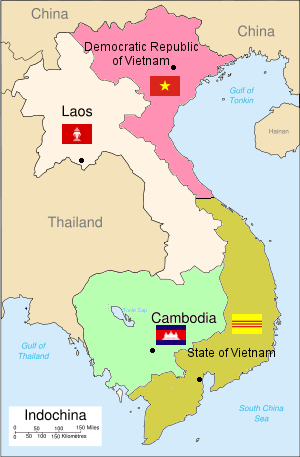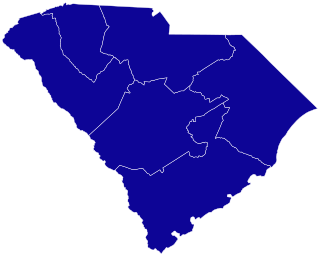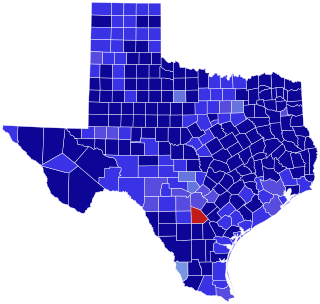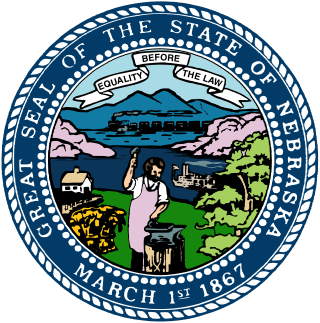Election summary
| | This section is empty. You can help by adding to it. (July 2010) |
The 1954 Northwest Territories general election was held on September 7, 1954. It was the only provincial / territorial election held in Canada that year.
This election saw the number of elected candidates increase by one.
| | This section is empty. You can help by adding to it. (July 2010) |
| Member | New/Re-appointed |
|---|---|
| Louis Audette | Re-appointed |
| Leonard Nicholson | Re-appointed |
| William Clements | Re-appointed |
| Jean Boucher | New |
| Frank Cunningham * | Re-appointed |
Note:
For complete electoral history, see individual districts
| District | Member |
|---|---|
| Mackenzie Delta | Frank Carmichael |
| Mackenzie North | John Parker |
| Mackenzie River | John Goodall |
| Mackenzie South | Robert Poritt |

The Geneva Conference was intended to settle outstanding issues resulting from the Korean War and the First Indochina War and involved several nations. It took place in Geneva, Switzerland, from 26 April to 20 July 1954. The part of the conference on the Korean question ended without adopting any declarations or proposals and so is generally considered less relevant. On the other hand, the Geneva Accords that dealt with the dismantling of French Indochina proved to have long-lasting repercussions. The crumbling of the French colonial empire in Southeast Asia led to the formation of the states of the Democratic Republic of Vietnam, the State of Vietnam, the Kingdom of Cambodia, and the Kingdom of Laos. Three agreements about French Indochina, covering Cambodia, Laos, and Vietnam, were signed on 21 July 1954 and took effect two days later.

The 1954 United States Senate elections was a midterm election in the first term of Dwight D. Eisenhower's presidency. The 32 Senate seats of Class 2 were contested in regular elections, and six special elections were held to fill vacancies. Eisenhower's Republican party lost a net of two seats to the Democratic opposition. This small change was just enough to give Democrats control of the chamber with the help of the Independent who at the start of this Congress in January 1955 agreed to caucus with them; he later officially joined the party in April 1955.

The 1954 United States House of Representatives elections was an election for the United States House of Representatives to elect members to serve in the 84th United States Congress. They were held for the most part on November 2, 1954, in the middle of Dwight Eisenhower's first presidential term, while Maine held theirs on September 13. Eisenhower's Republican Party lost eighteen seats in the House, giving the Democratic Party a majority that it would retain in every House election until 1994. This was nonetheless the first occasion when a Republican won a seat from Florida since 1882, and the first when the GOP won a seat from Texas since 1930.

The 1954 South Carolina gubernatorial election was held on November 2, 1954, to select the governor of the state of South Carolina. George Bell Timmerman won the Democratic primary and ran unopposed in the general election becoming the 105th governor of South Carolina.
The Maine Democratic Party is the affiliate of the Democratic Party in the U.S. state of Maine.

The 1954 South Carolina United States Senate election was held on November 2, 1954. Senator Burnet R. Maybank did not face a primary challenge in the summer and was therefore renominated as the Democratic nominee for the election in the fall. However, his death on September 1 left the Democratic Party without a nominee, and the executive committee nominated state Senator Edgar A. Brown as their replacement candidate. Many South Carolinians were outraged by the party's decision to forgo a primary election, and former Governor Strom Thurmond entered the race as a write-in candidate. He easily won the election and became the first U.S. senator to be elected by a write-in vote in an election where other candidates had ballot access. A Senate election where the victor won by a write-in campaign did not happen again until 2010.

The 1954 United States House of Representatives elections in South Carolina were held on November 2, 1954, to select six Representatives for two-year terms from the state of South Carolina. The primary elections were held on July 13. All six incumbents were re-elected and the composition of the state delegation remained solely Democratic.

The 1954California gubernatorial election was held on November 2, 1954. Incumbent Republican governor Goodwin Knight, who had ascended to the office after Earl Warren resigned to become Chief Justice of the United States the previous year, won a full term against Democrat Richard Graves.
The 1954 Inverness by-election was a by-election held on 21 December 1954 for the British House of Commons constituency of Inverness.

The 1954 United States elections were held on November 2, 1954. The election took place in the middle of Republican President Dwight D. Eisenhower's first term. In the election, the Republicans lost the Congressional majorities they had won in the previous election; Democratic gains were modest, but were enough for the party to win back control of both chambers of Congress.

The 1952 United States presidential election in Texas was held on November 4, 1952. It was part of the 1952 United States presidential election held throughout all contemporary forty-eight states. Voters chose twenty-four representatives, or electors, to the Electoral College, who voted for president and vice president.

The 1954 United States Senate special election in California was held on November 2, 1954, to elect a U.S. Senator to complete the unexpired term of Senator Richard Nixon, who resigned on becoming Vice President of the United States following the 1952 presidential election. Incumbent Republican U.S. Senator Thomas Kuchel, who had been appointed by Governor Earl Warren, won election to the remainder of the term, defeating Democratic nominee Sam Yorty.

The 1954 United States Senate election in Georgia took place on November 2, 1954. Incumbent Democratic U.S. Senator Richard Russell Jr. was re-elected to a fifth term in office.

The 1952 United States Senate election in Texas was held on November 4, 1952. Incumbent Democratic U.S. Senator Tom Connally did not run for re-election to a fifth term.

The 1954 United States Senate election in Texas was held on November 2, 1954. Incumbent Democratic U.S. Senator Lyndon Baines Johnson was re-elected to a second term in office, easily dispatching his challengers.

Two special elections in Nebraska were held on November 2, 1954, alongside a regular election. The Class I election was to finish Hugh A. Butler's term, with Samuel W. Reynolds appointed to the vacancy on July 3, 1954. The Class II election was to finish Kenneth S. Wherry's term, with Eva Bowring as incumbent at the time of the election. Both seats were held by Republicans, with Roman Hruska winning the Class I election and Hazel Abel winning the Class II election.

The 1954 Tennessee gubernatorial election was held on November 2, 1954, to elect the next governor of Tennessee. Incumbent Democratic governor Frank G. Clement defeated Independent candidate John Randolph Neal Jr. with 87.2% of the vote.

The 1954 Ohio gubernatorial election was held on November 2, 1954. Incumbent Democrat Frank Lausche defeated Republican nominee Jim Rhodes with 54.10% of the vote. To date this is the last gubernatorial election where Van Wert County voted Democratic.

The 1954 Maryland gubernatorial election was held on November 2, 1954. Incumbent Republican Theodore McKeldin defeated Democratic nominee Curley Byrd with 54.46% of the vote.

Elections were held in Illinois on Tuesday, November 2, 1954.